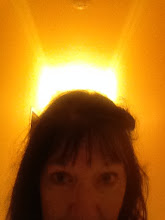I hear you're working out plans, says Roo-kai.
Yes, says Gaius. When the rain stops, we'll go inland to Wingham.
It's stopping now, says Roo-kai.
I can confirm that, says Wittgenstein.
Good, says Gaius. We'll go to Wingham, and work out our next move from there.
Wingham, says Arthur. What's at Wingham?
It hardly matters, says Gaius.
May as well look, says Sweezus, getting out his phone.
Bats, says Sweezus. Which is why it's called Wingham.
Not after Wingham in Kent? asks Wittgenstein.
Maybe, says Sweezus, but the aboriginal word wingan means where bats come to drink.
Ah, says Gaius. One can see how the name arose.
Can one? asks Wittgenstein.
Yes, says Gaius. A British explorer asks a local indigenous fellow what the name of the place is, and the fellow says wingan, and the explorer thinks, understandably, that he has said Wingham, so he names the place Wingham.
Why understandably? asks Wittgenstein,
Being British, says Gaius. He will know Kent.
Has he asked the aboriginal fellow what wingan means? asks Wittgenstein.
He may not have felt the need to, says Gaius.
Let's say he did and the fellow said it's where bats come to drink, says Wittgenstein.
Then the explorer would have been pleased with his naming, says Gaius.
Assuming he'd noticed the bats, says Wittgenstein.
Yeah, anyhow, says Sweezus, there are more cool things in Wingham.
He shows Arthur a picture of a long tallow wood log, propped up in Central Park in Wingham.
Sixteen metres long, says Sweezus, and 3.8 metres wide. Awesome.
Arthur looks less than excited.

No comments:
Post a Comment